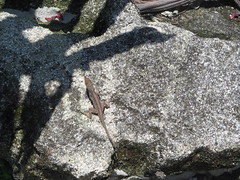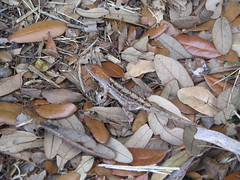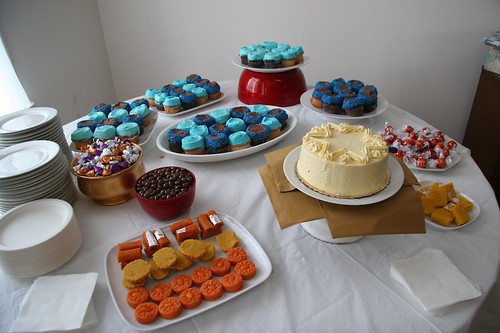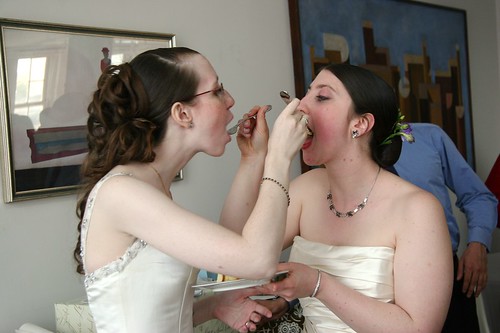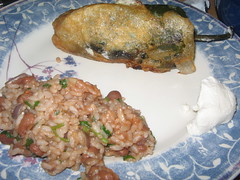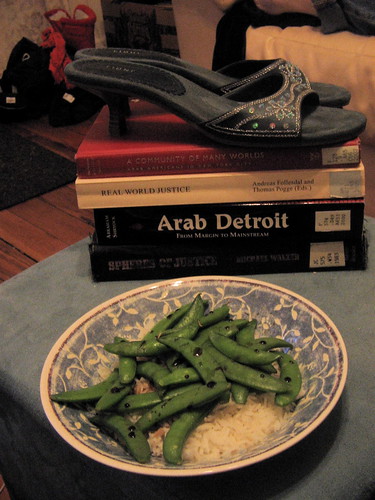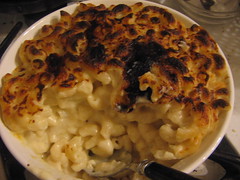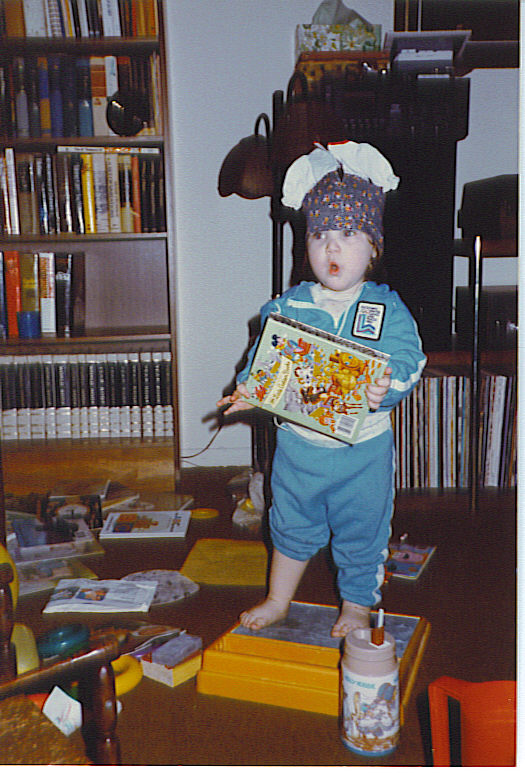Yizards
A few weeks back, the Princess (remember her? Probably not; no one was reading this blog back then. Back to the Cast of Characters with you!) and I were on the bus to the library. I had started talking, why I don't know, about lizards.
"I don't yike yizards," the Princess said. She hasn't yet mastered the [l] phoneme, although she is much better with [r] than most three-year-olds. (Linguistically, they're related. It's been a long time since freshman linguistics, so I can't tell you more than that, but I'm right.) The problem is, this is addictive. After a while you start asking her if she wants orange juice or yemonade, or telling her that the yibrary is two blocks away. "Yike" for "like" has become a common substitution in the house, if one is trying to be particularly cute or make a point.
"Why don't you like lizards?" I asked.
"They are scary and yucky and they taste bad," she said.
They taste bad?
The Wife and I just listened to a fascinating episode of Radio Lab while driving around Miami earlier this week. Radio Lab is an excellent combination of geekery and good audio production, made at WNYC, our hometown NPR, and available--for free--through iTunes and probably various other means of obtaining podcasts. Anyway, they were talking about the notion of the self, and how humans come to have it, and one of the things they talked about was how we have the ability to come up with abstract concepts. So we can look at a red thing, and understand red as separate from the other properties of it. We can put elements together--for instance, we can see a bird, and see a baby, and imagine a winged baby, a cherub.
I wonder if this isn't how we imagine food. We are able to assign qualities to it, in advance of tasting it. When someone says something tastes like cloves, I can imagine it, to a limited extent, because I can separate out the "clove-taste" element of a clove, as separate from the shape, the texture, the unpleasant sensation of biting down on one unexpectedly in your pumpkin pie, the way they feel when you push them into an orange. If someone tells me that a new food is bitter, or sweet, or floral, then I can think of it, and I know what it tastes like, maybe, a little.
How does the Princess know lizards taste bad?
What qualities is she able to assign to them, from her understanding of lizards? She has only seen them on television, and at the children's museum. Is it the smell? The fact that they are scaly? The fact that she is a little frightened of them?
Me? I don't know what lizards taste like. Everyone says chicken, but I think that's a lack of imagination. What I do know is I love the little lizards that seem to be everywhere I look right about now. I first saw a wild lizard the first time I went to France; they lay sunning themselves on the deck near the pool, just like we did. They are all over Florida, fast ones, ones with brown heads and black bodies and ones with speckles and even some green ones. They make this place seem magical. I love to watch them scurry away from our footsteps, to see them become still and hope I don't see them.
I yike yizards. Someday, I'll have to convince the Princess.
"I don't yike yizards," the Princess said. She hasn't yet mastered the [l] phoneme, although she is much better with [r] than most three-year-olds. (Linguistically, they're related. It's been a long time since freshman linguistics, so I can't tell you more than that, but I'm right.) The problem is, this is addictive. After a while you start asking her if she wants orange juice or yemonade, or telling her that the yibrary is two blocks away. "Yike" for "like" has become a common substitution in the house, if one is trying to be particularly cute or make a point.
"Why don't you like lizards?" I asked.
"They are scary and yucky and they taste bad," she said.
They taste bad?
The Wife and I just listened to a fascinating episode of Radio Lab while driving around Miami earlier this week. Radio Lab is an excellent combination of geekery and good audio production, made at WNYC, our hometown NPR, and available--for free--through iTunes and probably various other means of obtaining podcasts. Anyway, they were talking about the notion of the self, and how humans come to have it, and one of the things they talked about was how we have the ability to come up with abstract concepts. So we can look at a red thing, and understand red as separate from the other properties of it. We can put elements together--for instance, we can see a bird, and see a baby, and imagine a winged baby, a cherub.
I wonder if this isn't how we imagine food. We are able to assign qualities to it, in advance of tasting it. When someone says something tastes like cloves, I can imagine it, to a limited extent, because I can separate out the "clove-taste" element of a clove, as separate from the shape, the texture, the unpleasant sensation of biting down on one unexpectedly in your pumpkin pie, the way they feel when you push them into an orange. If someone tells me that a new food is bitter, or sweet, or floral, then I can think of it, and I know what it tastes like, maybe, a little.
How does the Princess know lizards taste bad?
What qualities is she able to assign to them, from her understanding of lizards? She has only seen them on television, and at the children's museum. Is it the smell? The fact that they are scaly? The fact that she is a little frightened of them?
Me? I don't know what lizards taste like. Everyone says chicken, but I think that's a lack of imagination. What I do know is I love the little lizards that seem to be everywhere I look right about now. I first saw a wild lizard the first time I went to France; they lay sunning themselves on the deck near the pool, just like we did. They are all over Florida, fast ones, ones with brown heads and black bodies and ones with speckles and even some green ones. They make this place seem magical. I love to watch them scurry away from our footsteps, to see them become still and hope I don't see them.
I yike yizards. Someday, I'll have to convince the Princess.
